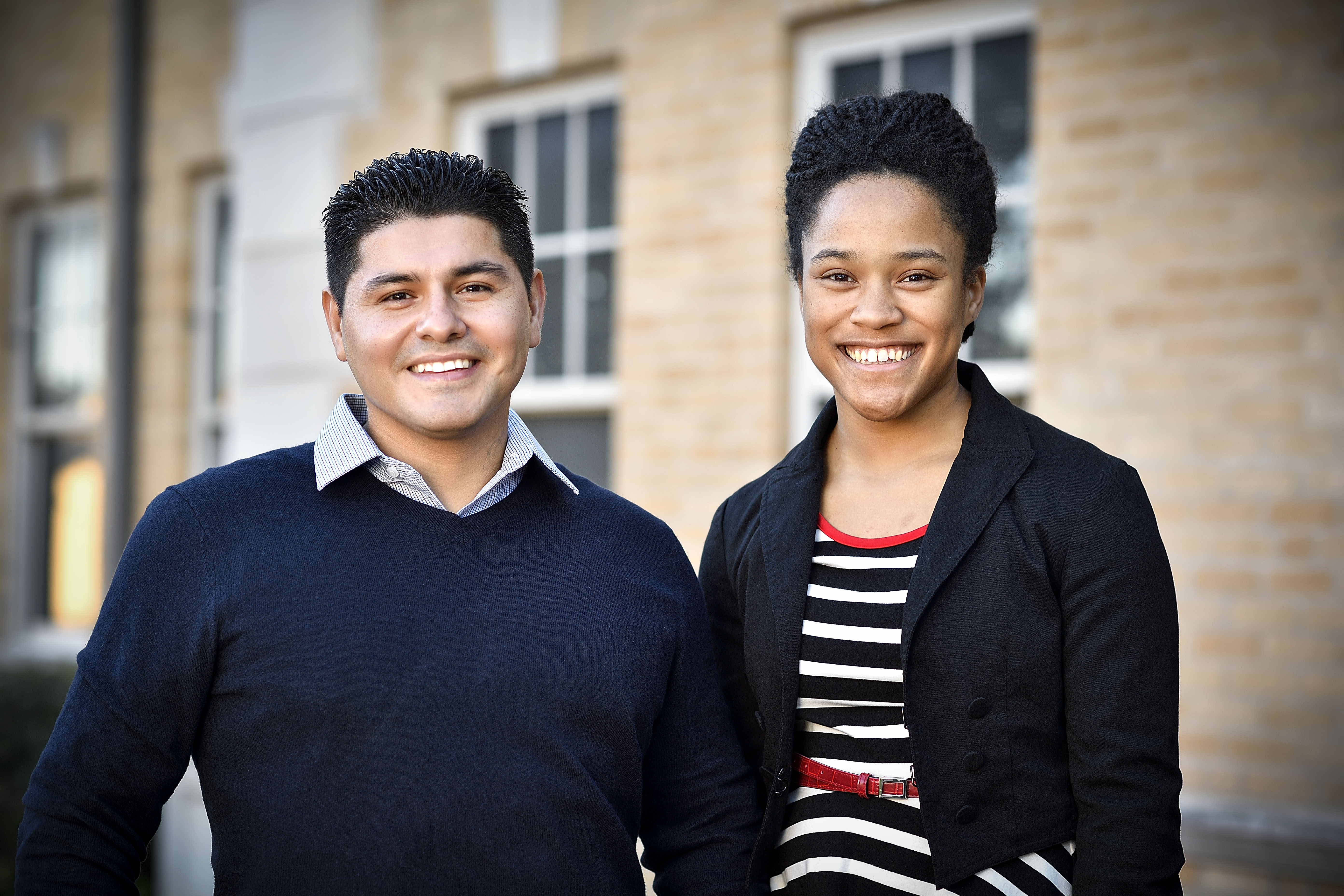
DENTON (UNT), Texas — José Whitten is preparing to graduate from the University of North Texas this month with a biological sciences degree, which he believes will prepare him for medical school.
He came to UNT via a Terry Foundation Scholarship, which pays for tuition and other expenses for students with academic achievement and demonstrated leadership potential. Despite his achievements, he said he felt disconnected at first from other UNT students, who grew up with biological parents. Whitten, from Houston, was only 3 when his biological mother’s parental rights were terminated and he was sent to foster care.
His feelings of being disconnected changed not long after he arrived at UNT in 2013 and attended his first meeting of PUSH, Persevere UNTil Success Happens. The organization gives support to UNT students formerly in the foster care or child welfare system while also providing support to foster children in the Denton community.
"PUSH convinced me that UNT was where I belonged," said Whitten, who became the organization’s president during 2015-16. "It may be uncomfortable to go to a meeting at first and speak, but I see a lot of healing in sharing your story with others. We give each other nudges in the right direction because we all want to succeed."
It’s support from each other, and also mentoring from educators in both high school and in college, that helps students from the foster care or child welfare system succeed in college, according to two UNT master of public administration students who recently completed a survey of 20 students in both PUSH at UNT and in Frontiers, Texas Woman’s University’s version of PUSH.
The master’s students, Abbey Heffner and Patrick Ratliff, completed the survey with Lisa Dicke, professor of public administration, and Brenda Sweeten, lecturer of social work. The faculty members had received an award from the Community Renewal Fund in UNT’s College of Public Affairs and Community Service, which houses PUSH, to support the students’ research.
Heffner said that while the PUSH and Frontiers students were all economically disadvantaged, with certificates of eligibility from the Texas Department of Family and Protective Services for tuition waiver, most were aspiring for careers to provide them financial stability.
"They didn’t want to just scrape by. A number of the students we spoke to mentioned going to graduate school. And many said they wanted to give back to their communities by becoming educators or social workers, or having another career to help students in the same position that they were once in," she said.
Heffner was a foster care case manager before entering UNT for her master of public administration degree, working mostly with children in elementary school and younger children. She noted that the ambition of the UNT and TWU students aligns with several studies that show that about 70 percent of high school students in foster care say they want to go to college. However, only seven to 13 percent eventually enroll, and only two to three percent complete degrees, she said.
The obstacles these students face — whether they came to UNT or TWU after aging out of foster care or had been in foster care at earlier ages before being adopted — include not only lack of financial support, but also few people to contact for advice on paying rent, buying a car and other life skills.
"Some had trouble paying for their books for classes. One student said her foster family was supportive of her coming to college, but still had other foster children at home and so couldn’t help her with finances or other needs," Heffner said.
In addition, "we generally expect family to be part of the college application process," but many of the students had little help from their families, she said, and mentioned high school counselors and teachers who had helped them instead.
"Some students hadn’t thought about going to college before a teacher mentioned it," she said.
UNT social work major Kiara Powell, PUSH’s current president, was in foster care from birth to age 4, when she was adopted. Even so, she didn’t find support from her family when it came time to attend college, and earning a college degree was not in her plans for after high school.
But several teachers at Powell’s high school, Wilmer-Hutchins in Dallas, "told me I had the ability to go to college," Powell said.
And she said her fellow PUSH members have been equally supportive.
"We all have similar backgrounds, and even though we come from backgrounds where we’re meant to fail, we know we can succeed, and we encourage each other and keep each other updated about how we’re doing in classes," she said.
In recent years, that encouragement has extended to young children and teens who are currently in foster care or the child welfare system. PUSH students regularly mentor children served by Dallas CASA – Court Appointed Special Advocates – and residents of Cumberland Presbyterian Children’s Home in Denton, who are all being served by the Texas Department of Family and Protective Services.
"You can see on the kids’ faces that they’re dealing with things that no child should have to deal with," Whitten said. "That’s why PUSH students leave their comfort zone and are constantly out in the community. We want to give back."




